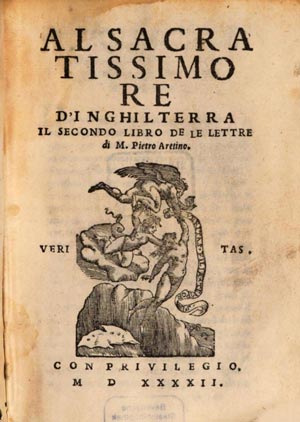‘Mr Peter Aretine, the right naturall poet’: Aretino and the Tudors

The book cover to Peter Aretine's translation of the Penitential Psalms.
Thursday 7 December 2023, 5.15PM
Speaker(s): Dr William Rossiter, University of East Anglia
Why did Sir Thomas Wyatt turn to Pietro Aretino when he was translating the Penitential Psalms, instead of a more reputable source? Why was Thomas Cromwell secretly paying Aretino? And why did the English ambassador to Venice assault Aretino and throw him in a canal?
This paper will look at Aretino’s diverse relationships with the courts, counsellors, and diplomats of Henry VIII, Edward VI and Mary I, as well as Aretino’s posthumous fame among Elizabethan authors and dramatists such as Thomas Nashe, Gabriel Harvey, Ben Jonson and William Shakespeare.
Aretino’s cultural and political importance continues to be reassessed, but the line of his influence in England from Henry VIII’s Great Matter through to the accession of James I has yet to be traced. What this paper shows is an unbroken line which follows the shifting international grounds of the Reformation and counter-reformation, and Aretino’s diverse cultural markers along that line. These markers provide an itinerary of Aretino’s cultural importance and political usefulness to the equally shifting objectives of the English crown, its representatives, and its agents. As Cromwell knew well, for a figure like Aretino situated at the centre of the European power matrix, some prices were worth paying.
This event will also be streamed online through Zoom. If you'd like to join us online, please register for the webinar before Thursday 7 December 2023.
If you're joining us in-person, you do not need to register for the event.
Location: SLB/108, The Spring Lane Building
